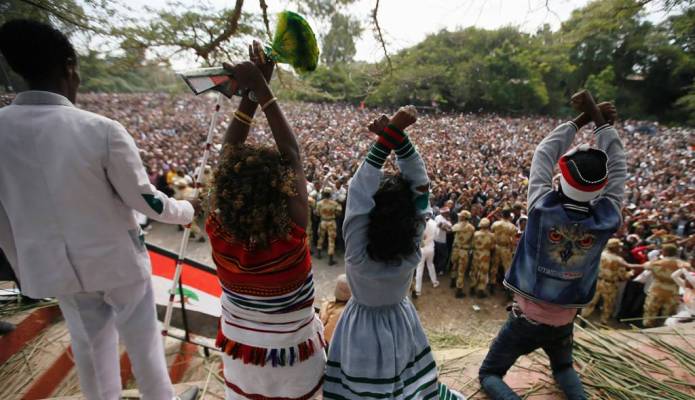Ethiopia’s tourism revenue declines after unrest

By Tesfa-Alem Tekle
November 16, 2016 (ADDIS ABABA) – Ethiopia’s tourism revenue has shown a decline after months long violent protests, Ministry of Culture and Tourism said on Wednesday.
According to the ministry’s report, revenue obtained from tourism has fallen by over 7.4 million USD during the first quarter of the current Ethiopian budget year.
The turn down the ministry said was due to decline in tourists visiting the country in fear of safety after violent protests in many parts of the country.
The state of emergency declared last month was also mentioned as a cause for the turn down in tourists flow to the country.
The ministry said the revenue collected in the first quarter of the year was some $ 872 million, which was below the target set for the quarter.
Thousands of tourists have reportedly cancelled planned trips to the horn of Africa’s nation following the violent protests and state emergency.
In the last decade number of tourist visiting Ethiopia has steadily increased.
Ministry Public and International Relations Director, Gezahegne Abate told journalists that the ministry has began dispatching up-to-date information about the current situation of the country to allow tourists get the right information.
Ethiopia is among the top 10 countries recommended to be visited in 2017 by Lonely Planet, the world’s prominent travel publisher.
Since last year the east African nation has faced an unprecedented wave of violent protests that claimed the lives of over 500 people.
But the country’s most recent protests were sparked after a religious festival in Oromia region turned into violet anti-government protests claiming lives of 55 in stampede.
After the protests spread to many parts of the country, Ethiopia imposed a six-month state of emergency to contain the deadly the anti-government demonstrations which were most held the Oromia and Amhara regions.
The protests first erupted over demands for land rights however later turned in to calling for increased political and economic rights.
Last week, Ethiopia has lifted a ban on diplomats travelling more than 40km from the capital Addis Ababa without permission.
Officials say the travel ban against diplomats was imposed for the safety of diplomats.
The travel restrictions were lifted as the situation nationwide appears to be more stable.
Ethiopia’s State of Emergency Inquiry Board last week announced that authorities have arrested 11,607 people under the state decree.
(ST)
